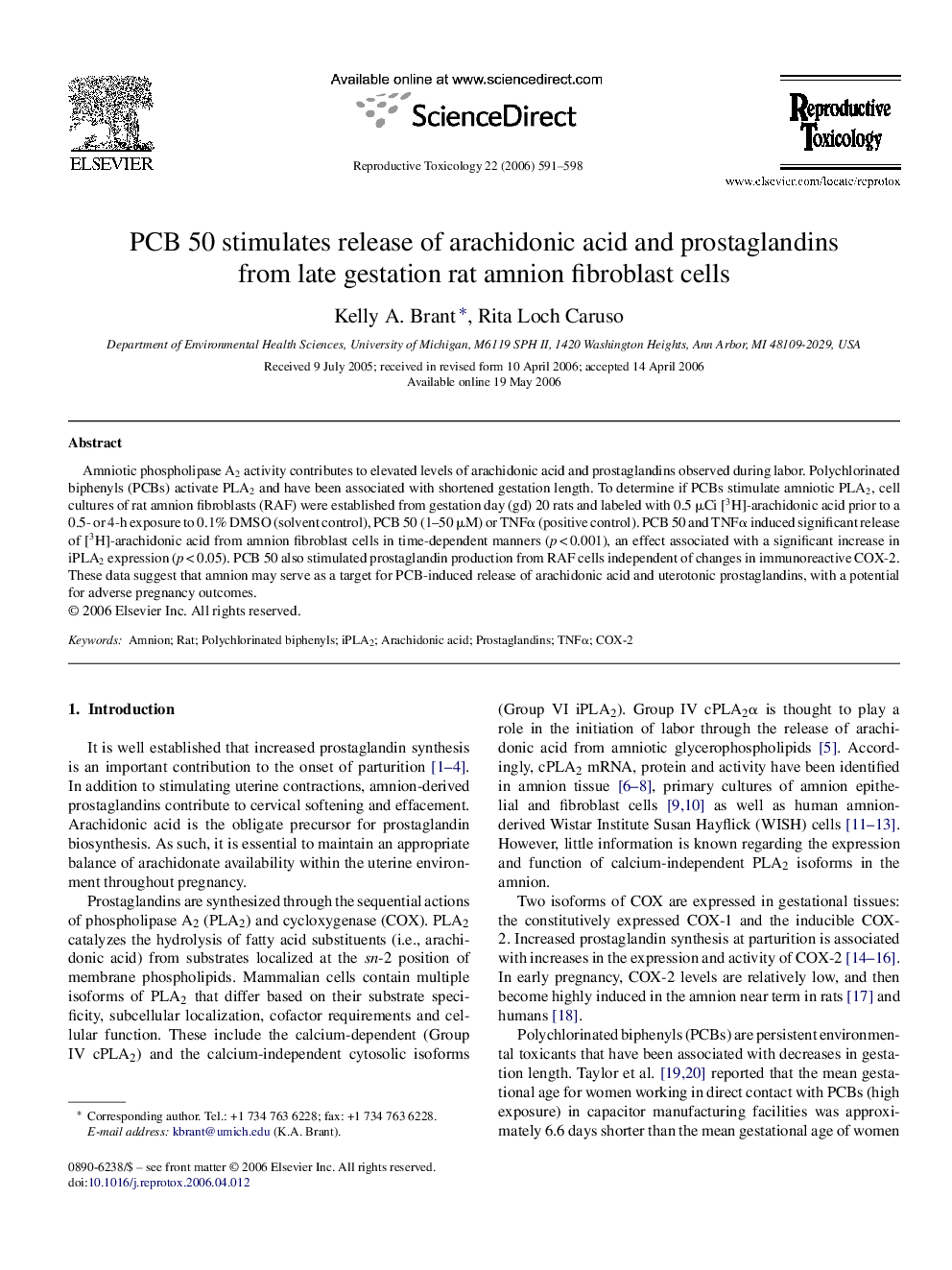| Article ID | Journal | Published Year | Pages | File Type |
|---|---|---|---|---|
| 2594620 | Reproductive Toxicology | 2006 | 8 Pages |
Abstract
Amniotic phospholipase A2 activity contributes to elevated levels of arachidonic acid and prostaglandins observed during labor. Polychlorinated biphenyls (PCBs) activate PLA2 and have been associated with shortened gestation length. To determine if PCBs stimulate amniotic PLA2, cell cultures of rat amnion fibroblasts (RAF) were established from gestation day (gd) 20 rats and labeled with 0.5 μCi [3H]-arachidonic acid prior to a 0.5- or 4-h exposure to 0.1% DMSO (solvent control), PCB 50 (1-50 μM) or TNFα (positive control). PCB 50 and TNFα induced significant release of [3H]-arachidonic acid from amnion fibroblast cells in time-dependent manners (p < 0.001), an effect associated with a significant increase in iPLA2 expression (p < 0.05). PCB 50 also stimulated prostaglandin production from RAF cells independent of changes in immunoreactive COX-2. These data suggest that amnion may serve as a target for PCB-induced release of arachidonic acid and uterotonic prostaglandins, with a potential for adverse pregnancy outcomes.
Related Topics
Life Sciences
Environmental Science
Health, Toxicology and Mutagenesis
Authors
Kelly A. Brant, Rita Loch Caruso,
